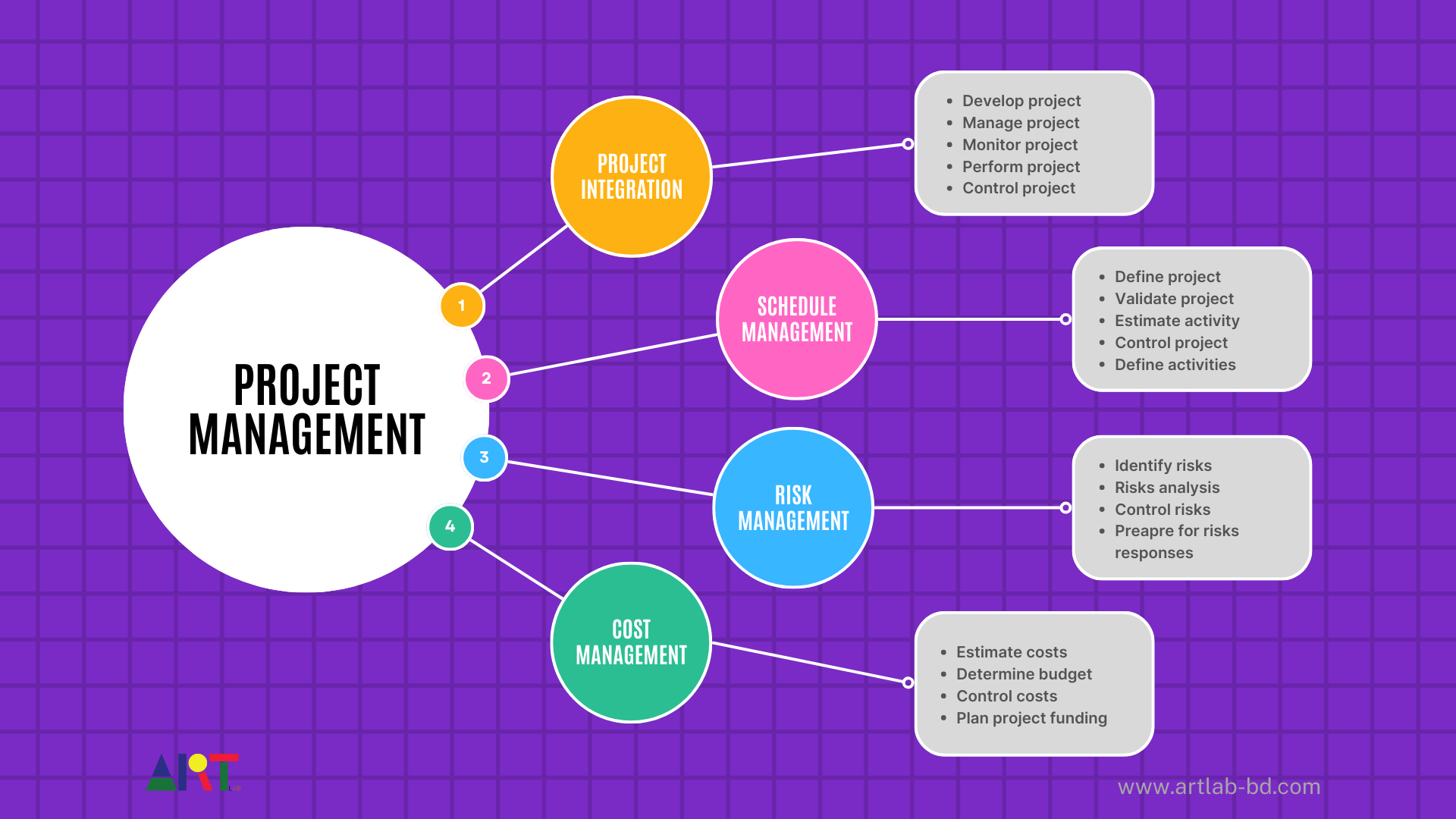

At ART Lab, we understand that managing a project is a multi-faceted task that requires careful planning, attention to detail, and a strategic approach. Whether you’re leading a small team or overseeing a large-scale initiative, the foundation of a successful project lies in how well it is managed. Here, we break down the four essential areas of project management that ensure smooth execution and optimal results:
- Project Integration: The Glue That Holds Everything Together
Project integration management is all about ensuring all aspects of a project are aligned. From the initial concept to final delivery, a project manager must oversee the development, management, monitoring, and controlling of the project. This process integrates all the components, making sure they work seamlessly to achieve the project’s objectives.
Key steps in project integration include:
- Developing the project plan
- Managing project changes
- Monitoring and controlling project performance
- Closing the project and evaluating its outcomes
- Schedule Management: Keeping the Project on Track
A project without a schedule is like a ship without a compass. Schedule management is crucial for defining tasks, estimating how long they’ll take, and monitoring progress to ensure deadlines are met. It’s important to break down each project into manageable steps and ensure that timeframes are realistic.
Key steps in schedule management:
- Defining project activities
- Estimating activity durations
- Developing a project schedule
- Controlling the schedule to meet deadlines
- Risk Management: Staying One Step Ahead
Every project comes with risks, and the best way to manage them is to be prepared. Risk management helps identify potential issues before they become obstacles. Whether it’s budget overruns, scope creep, or external factors, assessing risks early on and creating a plan to respond can save time, money, and effort down the line.
Key steps in risk management:
- Identifying potential risks
- Analyzing the likelihood and impact of each risk
- Developing risk response strategies
- Continuously monitoring risks throughout the project
- Cost Management: Maximizing Budget Efficiency
Managing project costs is critical to ensuring that the project stays within budget and delivers value. Cost management involves estimating costs, determining a project budget, and controlling expenses throughout the project’s lifecycle. Effective cost management ensures that the project can be completed without financial strain while still achieving its objectives.
Key steps in cost management:
- Estimating costs for each project phase
- Determining the project budget
- Controlling costs and monitoring financial performance
- Ensuring proper allocation of resources
Conclusion: Building Successful Projects from the Ground Up
Effective project management is a balancing act that requires skill, experience, and a strategic approach. At ART Lab, we believe that by focusing on project integration, schedule management, risk management, and cost management, you can ensure your project runs smoothly and successfully. Whether you’re starting a new initiative or scaling an existing project, these core elements will guide you toward success.
With ART Lab by your side, you can turn your ideas into reality, using proven methodologies to bring your projects to life. Ready to take your project management skills to the next level? Let’s work together to create something amazing!

